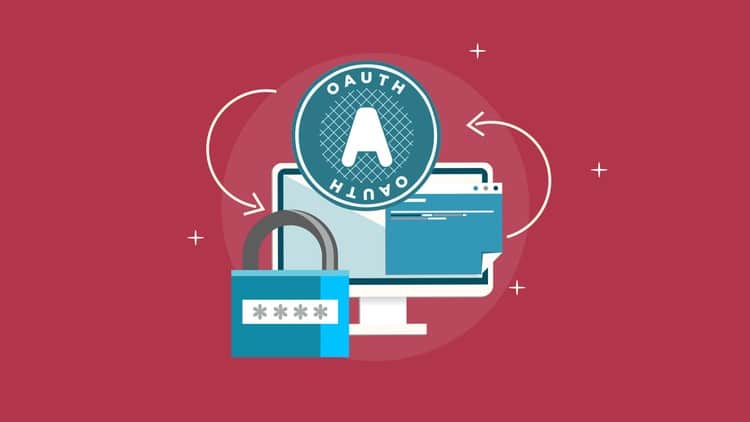- Регистрация
- 27 Авг 2018
- Сообщения
- 37,817
- Реакции
- 544,072
- Тема Автор Вы автор данного материала? |
- #1

- Use OAuth to access Google, Paypal, LinkedIn and Facebook APIs
- Use OAuth in Mobile Apps (client-side).
- Use OAuth to protect your APIs and Cloud Solutions
- Apply OAuth Best Practices.
- Choose the correct OAuth Flow flow for your use-case.
- Know the OAuth Terminology: Actors, Endpoints, Tokens.
- Use OAuth in Cloud Solutions (client-side).
- You should be familiar with basic web service and API development
- If you would like to use OAuth in a Mobile App, you should know how to develop for the respective platform. Mobile App Development is not covered in this course.
This course is for you...
...if you want to improve your market value as a Software Engineer and Security Expert. Imagine what could happen to your professional career if you could add API Security and OAuth skills to your CV!
API Security experts and engineers who understand OAuth are in HIGH DEMAND, as companies expand their digital business. Plenty of opportunities are waiting for anyone who has the right skills.
Do you want to write best-selling iPhone and Android apps?
The most popular mobile apps integrate with popular social APIs of Google, LinkedIn, Facebook, Paypal and many more. If this is a well-known fact, why do app developers not just do it?
Many app developers are afraid of complicated OAuth integrations. Security is in fact the biggest hurdle for most mobile app developers.
With the knowledge gained in this course, you can use the secret of the best app developers out there and finally integrate your app with social APIs.
Do you want to start out on your own, as an entrepreneur, consultant or freelancer?
Knowing API Security and OAuth allows you to realize the big vision of your company in the field of mobile apps, cloud apps and web APIs, such as Google, Paypal, and LinkedIn.
Do you want to build exciting solutions with next-generation technology?
Whether you are a web developer, mobile developer, or API developer, an architect or embedded developer for the Internet of Things, today you need to know OAuth to build state-of-the-art solutions.
What does this course offer?
This course offers an introduction to API Security with OAuth 2.0. In 3 hours you will gain an overview of the capabilities of OAuth. You will learn the core concepts of OAuth. You will get to know all 4 OAuth flows that are used in cloud solutions and mobile apps.
If you have tried to read the official OAuth specification, you may get the impression that OAuth is complex. This course explains OAuth in simple terms. The four OAuth flows are visualized graphically using sequence diagrams. The diagrams are then animated so you get to know the interactions step by step and see the big picture of the various OAuth interactions. This high-level overview is complemented with a rich set of example requests and responses and an explanation of the technical details.
Who should take this course?
Do you believe OAuth is complicated? OAuth may seem complex with flows and redirects going back and forth. This course will give you clarity by introducing the seemingly complicated material by many illustrations. These illustrations clearly show all the involved interaction parties and the messages they exchange.
Do you want to learn the OAuth concepts efficiently? This course uses many animated diagrams and sequence diagrams. A good diagram says more than 1000 words.
Do you want to use OAuth in your mobile app? If you want to access resources that are protected by OAuth, you need to get a token first, before you can access the resource. For this, you need to understand the OAuth flows and the dependencies between the steps of the flows.
Do you want to use OAuth to protect your APIs? OAuth is perfectly suited to protect your APIs. You can learn which OAuth endpoints need to be provided and which checks need to be made within the protected APIs.
Who this course is for
- This course is for beginners in API Security and OAuth.
- This course is not for you, if you already know the four basic OAuth flows and how they are used.
DOWNLOAD:



